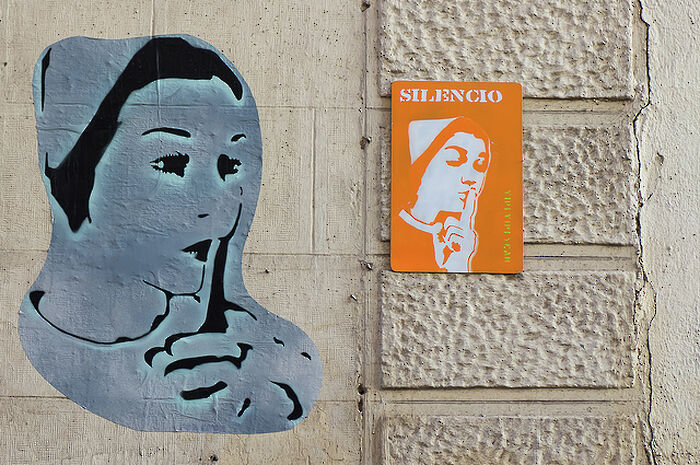Why not a women only music festival?
Harassment is so common that this may be the only way to make women feel safe

If you’ve never experienced sexual harassment and want some sense of its scale, here’s a little experiment for you. Walk into any room of young women, and prompt them with a story of your being harassed on the way over (you can borrow one from me if you like). I can almost guarantee that what you’ll get back is fifty similar stories, each one more distressing than the last.
I can’t count the amount of evenings that have started with one friend’s casual complaint and ended in hours of story-swapping about being groped, assaulted and harassed by men on public transport, the street, buses, taxis, clubs, even at work.
Dig a little deeper, and you’ll find this anecdotal evidence backed up by grim statistics. In a 2015 Parisian survey, 100 per cent of women respondents said they’d experienced some form of sexual harassment on public transport. A study in the UK last year found that half of the women surveyed had been sexually harassed at work, whilst a YouGov poll in the same year found that 64 per cent of women had experienced sexual harassment in a public place.
“Imagine, if you will, a space where women didn’t have to choose between bringing a male friend or risking harassment”
The problem is insidious and far-reaching, and this year, Sweden’s Bråvalla festival decided enough was enough. Just a few weeks ago, after a spike in sexual harassment and assault at this year’s festival, organisers announced that they would be trialling a female-only festival in the coming year. Depressing though this was, I have to admit that I was relieved.
The move inevitably drew huge criticism, and the same accusative cries of “segregation” emerged as they had done in 2015 when Corbyn raised the idea of women-only train carriages for combatting harassment. As a young woman, it confused me then and confuses me now that anyone could be so vehemently opposed to giving women some small corner of the world where they didn’t have to look constantly over their shoulder, a privilege most men are afforded everywhere they go.
Because that’s exactly how I would describe what it feels like to traverse public space as a woman; like always looking over your shoulder, always being alert. A lot of the time, this feeling lingers in the background, coming and going, but it’s like a sixth sense, bristling up when you walk home alone and notice someone following your steps, or when you feel a man inching closer towards you in a club. I struggled when trying to find the right words here to express how sexual harassment makes you feel, but if I had to select a choice few I’d pick humiliated, unsafe, and angry.
This feeling is at its most acute when you’re jolted straight out of something you were supposed to be enjoying; a club, a holiday, or a festival. When myself and four friends went inter-railing last year, we were harassed on every day of the holiday in every country we visited, despite having a male friend with us. At Glastonbury this year, in the festival’s only on-site gay club, my female friend and I were harassed by a man who aggressively rubbed up against us after I’d told him “no” a firm five times. He stopped only when a male friend of ours walked over.
So imagine, if you will, a space where women didn’t have to choose between bringing a male friend or risking harassment. Where they could drink freely without the worry that they might be assaulted and then blamed. I’m not saying it’s the perfect solution. There’s no guarantee that assault wouldn’t be carried out by women. Many will point out, rightly, that not all men are culprits of this harassment. But as the #yesallwomen campaign has so aptly demonstrated, the situation is critical for all women. And with only 11 per cent of women in the YouGov street harassment survey saying someone had stepped in to help, those who aren’t culprits still need to be doing more.
The end-goal should always be changing a culture that teaches men that they’re entitled to women’s bodies whenever they please. But Bråvalla organiser Emma Knyckare is right; until those men learn to behave themselves, women need space to enjoy themselves freely without fear of harassment or assault
 News / Cambridge academics stand out in King’s 2026 Honours List2 January 2026
News / Cambridge academics stand out in King’s 2026 Honours List2 January 2026 Interviews / You don’t need to peak at Cambridge, says Robin Harding31 December 2025
Interviews / You don’t need to peak at Cambridge, says Robin Harding31 December 2025 Comment / What happened to men at Cambridge?31 December 2025
Comment / What happened to men at Cambridge?31 December 2025 Features / “It’s a momentary expression of rage”: reforming democracy from Cambridge4 January 2026
Features / “It’s a momentary expression of rage”: reforming democracy from Cambridge4 January 2026 News / Varsity’s biggest stories of 202531 December 2025
News / Varsity’s biggest stories of 202531 December 2025










